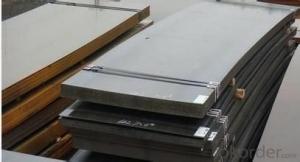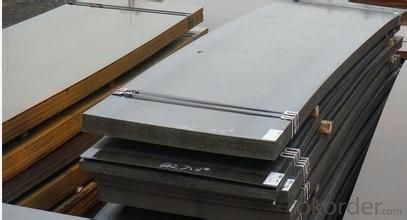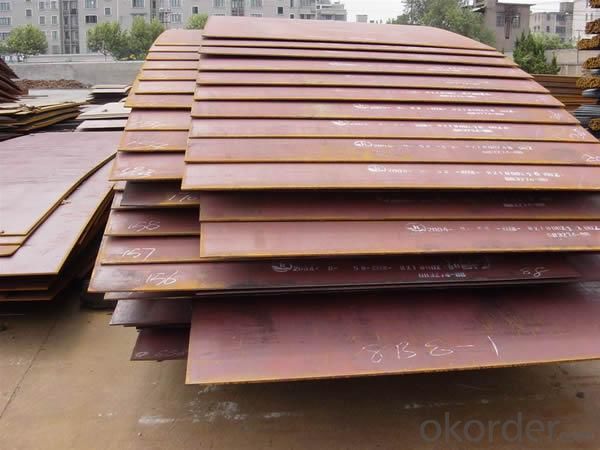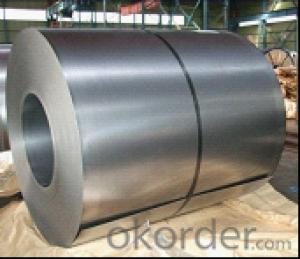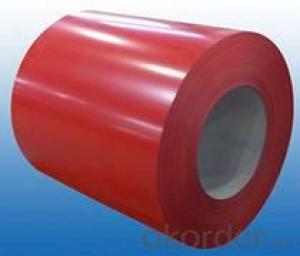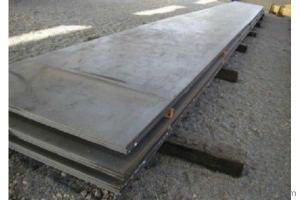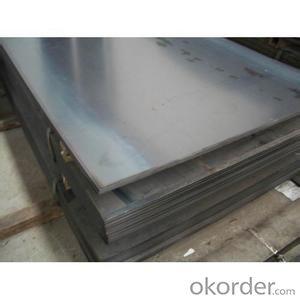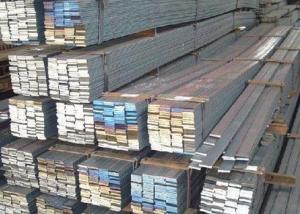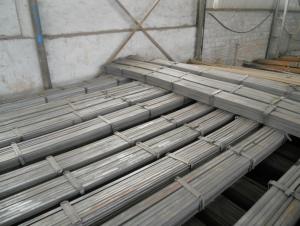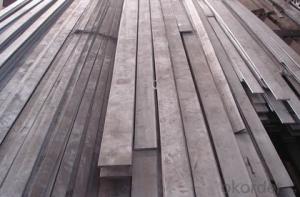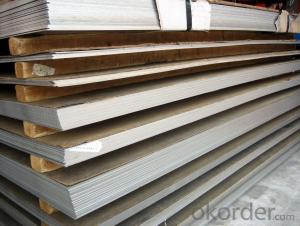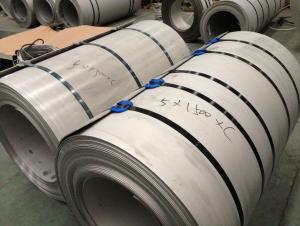Hot Rolled Steel Plate for Construction and Container
- Loading Port:
- Tianjin
- Payment Terms:
- TT OR LC
- Min Order Qty:
- 500 m.t.
- Supply Capability:
- 5000 m.t./month
OKorder Service Pledge
OKorder Financial Service
You Might Also Like
Specification
1. Product Description
The Billets as raw materials, through furnace heating, high-pressure water to reduce the phosphorus, then entering the roughing mill, cutting head, end, and then put into the finishing mill, cutting the edge, after the times of straightening, leveling and other finishing line treatment, and then cutting board or coil becomes the hot rolled steel sheet and hot rolled steel coil.
2. Main Features
Characteristics of hot rolled steel hot-rolled steel is a high temperature heating and rolled steel, hot rolled product has high strength, good toughness, easy to processing molding and good weldability and other excellent properties, which are widely used in ship, automobile, Bridges, buildings, machinery, pressure vessels and other manufacturing industries.
3. Excellent Product Image
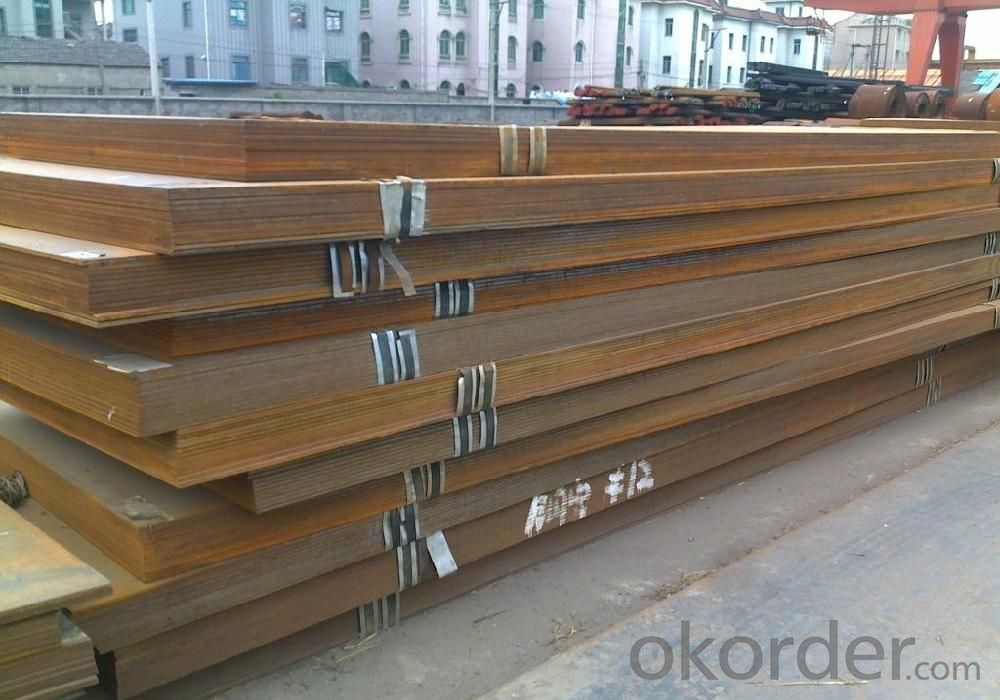
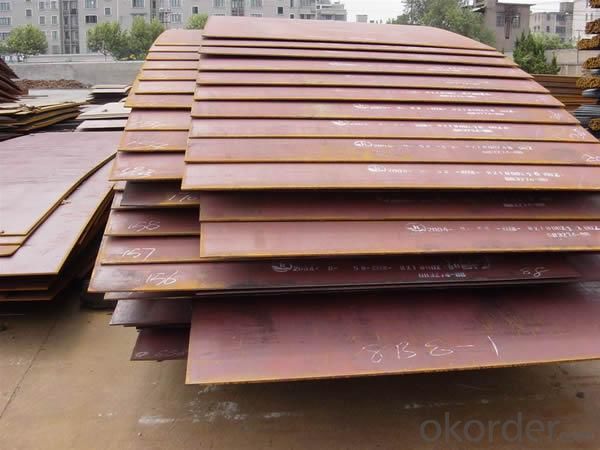
4. Application
Our hot-rolled steel coil and sheet are applied to a wide range of uses such as automobile, electrical appliance, machinery manufacturing, container manufacturing, shipbuilding, bridge, pipeline, and receive high acclaim from our customers for its excellent quality.
1, the general structure of the steel structure steel production and steel welded structure, it is mainly used for steel structures, Bridges, ships, the production of vehicles.
2, weathering steel add special elements (P, Cu, C, etc.), has good corrosion resistance and atmospheric corrosion resistance, is used in the production of the container, special vehicle, also used for building structures.
3, the structure of the automobile stamping steel has good performance and weldability of high strength steel plate, used in production of automobile FRAME, WHEEL, etc.
4, hot rolled steel General mechanical structure with carbon steel, alloy steel, tool steel, after heat treatment engineering used in the production of various kinds of machinery parts and components
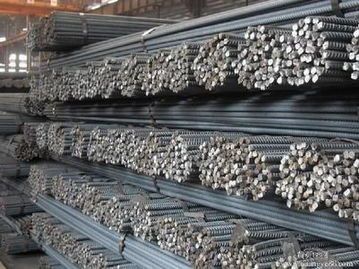
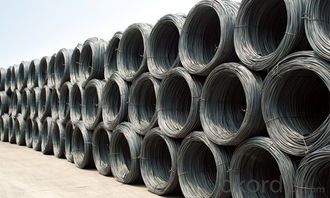
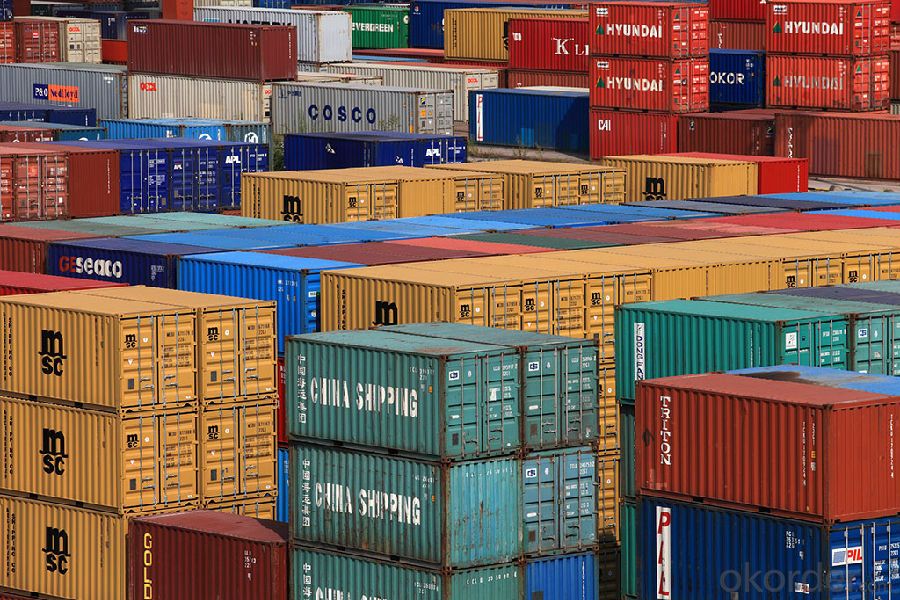
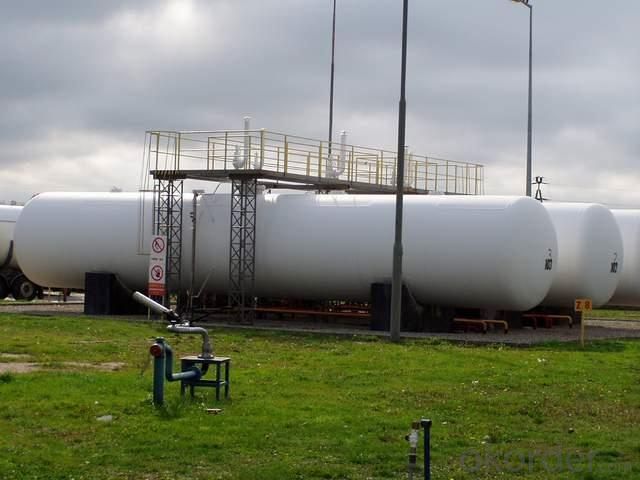
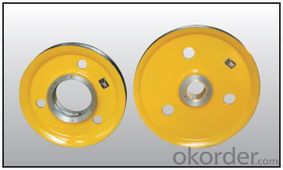
- Q: How are steel sheets protected during welding?
- Shielding plays a crucial role in safeguarding steel sheets during welding. Its purpose is to shield the sheets from oxygen and other atmospheric contaminants that can lead to oxidation and impurities in the weld. Multiple methods are utilized to shield the steel sheets during welding. One commonly employed approach involves using a shielding gas, such as argon or carbon dioxide, which is directed towards the welding area to establish a protective atmosphere. This gas displaces the surrounding oxygen, effectively preventing it from reacting with the heated metal and causing oxidation. In addition to the use of shielding gas, another widely used method involves employing flux. Prior to welding, a substance known as flux is applied to the joint area of the steel sheets. Acting as a protective barrier, the flux creates a molten slag that covers the weld and provides shielding from the atmosphere. Flux can take the form of a powder, paste, or even a continuous wire feed during welding. Furthermore, certain welding techniques, like submerged arc welding, combine the use of both shielding gas and flux to offer optimal protection for the steel sheets. This technique involves the continuous feeding of granular flux along with the welding wire. As the flux melts, it forms a protective layer over the weld, while the shielding gas effectively prevents any atmospheric contamination. Overall, the safeguarding of steel sheets during welding is crucial for ensuring the weld's quality and integrity. Shielding methods, such as the use of shielding gas and flux, establish a protective environment that prevents the formation of oxidation, impurities, and other defects in the weld. Consequently, this results in a robust and long-lasting joint between the steel sheets.
- Q: What is the difference between the zinc plated color guide and the profiled steel sheet?
- Profiled steel sheet Yaxing, GangBan, English Name: profiled steel sheetRoof and wall panels are usually 0.4 to 1.6 millimeters thick and used for load-bearing slabs or silos with a thickness of 2~3 millimeters or more. The wave height generally ranges from 10~200 mm. When not reinforced, the ratio of height to thickness should be controlled within 200. When the long roof panel, the slope can be used from 2 to 5%, while the deflection is less than l/300 (L for the calculation of span length). At present, part of the waveform used in the construction is shown in Figure II, commonly used for profiled steel sheets.Because the original plate is very thin, the quality of the anticorrosive coating directly affects the service life of the profiled steel sheet. In order to meet the requirements of processing and rust prevention, the coated steel plate shall be examined in accordance with the relevant provisions. Under normal circumstances, thin steel plate can also be used according to the requirements, after pressing type, and then coated with anti rust paint, or use stainless steel sheet, the original plate.
- Q: Can steel sheets be used in the defense industry?
- Yes, steel sheets can be used in the defense industry. Steel is a versatile and strong material that can be used for various applications such as armor plating, vehicle manufacturing, and construction of military infrastructure. Its durability and resistance to impact make it suitable for protecting military equipment and personnel, making it an essential component in the defense industry.
- Q: What is the average cost of steel sheets per square foot?
- The average cost of steel sheets per square foot can vary depending on factors such as thickness, quality, and market conditions. It is recommended to contact suppliers or conduct research to get the most accurate and up-to-date pricing information.
- Q: Do the steel sheets have any sharp edges?
- Indeed, sharp edges can be found on steel sheets. Throughout their production, steel sheets frequently undergo cutting or shearing processes, thereby resulting in the presence of sharp edges. It is of utmost importance to exercise caution when dealing with steel sheets and to employ suitable protective gear, like gloves, while working with them, in order to prevent any harm arising from the sharp edges.
- Q: Can steel sheets be used in the construction of bridges?
- Yes, steel sheets can be used in the construction of bridges. Steel sheets are commonly used as structural components for various types of bridges due to their high strength, durability, and resistance to corrosion. They provide excellent load-bearing capacity and can be easily fabricated and assembled, making them a popular choice in modern bridge construction.
- Q: Can steel sheets be used in the aerospace industry?
- Yes, steel sheets can be used in the aerospace industry. However, their use is limited due to their weight and lower strength-to-weight ratio compared to other materials like aluminum and titanium. Steel sheets may be employed in certain components, such as structural supports or non-critical areas, where weight is less of a concern.
- Q: What are the different sheet metal finishing techniques for steel sheets?
- Some of the different sheet metal finishing techniques for steel sheets include deburring, grinding, polishing, sanding, and painting.
- Q: What are the limitations of using steel sheets?
- One limitation of using steel sheets is their susceptibility to corrosion, especially when exposed to moisture or certain chemicals. Additionally, steel sheets can be heavy and require special equipment for handling and installation. They also have limited flexibility and may crack or break under excessive stress or bending. Moreover, steel sheets may be more expensive compared to other materials, making them less cost-effective in certain applications.
- Q: What is the average cost of steel sheets compared to fiberglass?
- The average cost of steel sheets can vary compared to fiberglass sheets depending on a variety of factors. In general, fiberglass sheets tend to be less expensive than steel sheets. This is primarily because the raw materials used in steel sheet production are more costly, and the manufacturing process is more complex. Furthermore, steel sheets are renowned for their durability and strength, making them a popular choice for applications that require resilience and resistance to harsh weather conditions or impact. Conversely, fiberglass sheets are typically cheaper due to the lower cost of raw materials and the simpler manufacturing process involved. They are commonly employed in applications where weight and corrosion resistance are crucial factors, such as the construction of boats or aircraft. Nevertheless, it is important to acknowledge that market fluctuations, availability, and specific project requirements can also influence the cost comparison between steel and fiberglass sheets. Hence, it is advisable to obtain quotes from suppliers and compare prices to accurately determine the average cost within a given context.
Send your message to us
Hot Rolled Steel Plate for Construction and Container
- Loading Port:
- Tianjin
- Payment Terms:
- TT OR LC
- Min Order Qty:
- 500 m.t.
- Supply Capability:
- 5000 m.t./month
OKorder Service Pledge
OKorder Financial Service
Similar products
Hot products
Hot Searches
Related keywords
